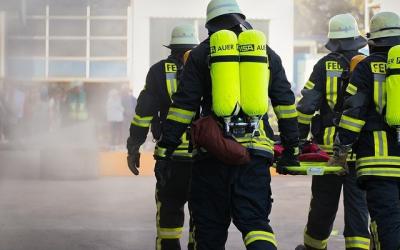EL NUEVO CORONAVIRUS. UNA PROBLEMÁTICA ACTUAL
NEW CORONAVIRUS A CURRENT PROBLEM
Fecha recibido: 11/01/2021 | Fecha publicado: 25/02/2021 | Fecha corregido: 25/02/2021 |Autores
Dra. Mariela Chacón Veranes Dr. Emilio Chacón Lozada Sailin Del Toro Felipe MsC. Isnelvis del Carmen Felipe Fuentes Dra. Elsa María Mendoza López
Resumen
La COVID-19 enfermedad causada por el nuevo coronavirus que se descubrió en la ciudad de Wuhan, China, a finales de 2019. Objetivo: Implementar una intervención educativa sobre el mínimo riesgo de introducción y diseminación del Nuevo Coronavirus que permita la disminución de los efectos negativos de la epidemia en la salud de la población. Material y Método: se realizó un estudio de intervención, antes-después sin grupo de control sobre el nivel de conocimiento acerca de la COVID-19, en la población del consultorio No 13 del Policlínico Docente América II en el municipio Contramaestre. El universo estuvo constituido por 1303 y la muestra fueron 415 pacientes. Las variables: fuente de información para la adquisición de los conocimientos, información general sobre la COVID-19, síntomas clínicos de la COVID-19, diferencias con otras afecciones respiratorias frecuentes y medidas para la prevención de la COVID-19. Se emplearon estadígrafos descriptivos y para el análisis comparativo se aplicó el test McNemar. Resultados: de las fuentes de información la pesquisa fue la más referida por 143 pacientes. Después de aplicada la intervención, sobre información general de la COVID-19, las personas con conocimiento adecuado fueron el 95,4 %. La información sobre los síntomas clínicos y diferencias de la COVID-19 con otras afecciones respiratorias fueron adecuadas con 80 % y 93,7 % de los pacientes respectivamente. Sobre las medidas preventivas, fueron adecuados en los 415 pacientes. Conclusiones: la intervención educativa fue efectiva lográndose un nivel de conocimiento alto en la mayoría de la población durante la pesquisa activa.
Palabras clave: Coronavirus; COVD-19; Intervención educativa; Prevención; SARS-CoV-2
NEW CORONAVIRUS A CURRENT PROBLEM
Summary
COVID-19 is a disease caused by the new coronavirus that was discovered in the city of Wuhan, China, at the end of 2019. Objective: To implement an educational intervention about the minimum risk of introduction and spread of the new Coronavirus to the patients of CMF No 13 health area that allows the reduction of the negative effects of the epidemic on the health of the population. Material and Method: an intervention study was carried out, before-after without a control group on the level of knowledge about COVID-19, in the population belonging to the clinic No 13 of the Teaching Polyclinic América II in the Contramaestre municipality. The universe consisted of 1303 and the sample was 415 patients. The variables a source of information for the acquisition of knowledge, general information about COVID-19, clinical symptoms of COVID-19, differences with other common respiratory conditions and measures for the prevention of COVID-19. Descriptive statistics were used and the McNemar test was applied for the comparative analysis. Results: among all the information sources, the research was the most referred by 143 patients. After applying the intervention, on general information about COVID-19, people with adequate knowledge were 95.4%. Information on clinical symptoms and differences of COVID-19 with other respiratory conditions were adequate in 80% and 93.7% of patients, respectively. Regarding preventive measures, they were adequate in the 415 patients. Conclusions: the educational intervention was effective because a high level of knowledge was achieved in the majority of the population during the active research.
Keywords: Coronavirus; COVD-19; Educative intervention; Prevention; SARS-CoV-2


